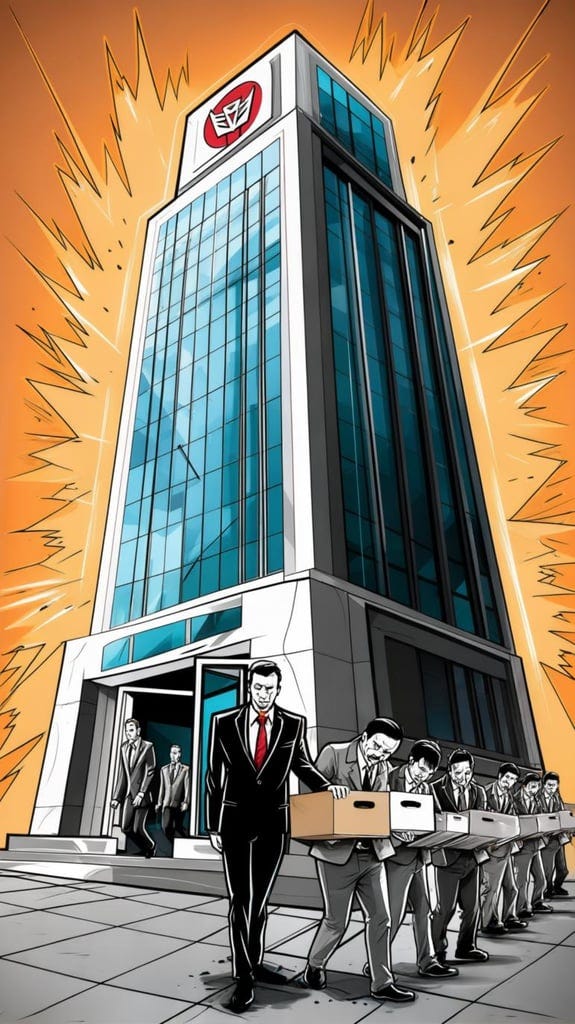Github much? EDIT CORRECTION:
I did too, until today--and then I didn't again. I'm confused......
Editing and removing what I said previously, but leaving this post here—I mean I did say something right!? I won’t pretend I didn’t, however I will dig into the paywall that popped up regarding Copilot X Github on my local repo.
I was curious, and frustrating since I have no money, and certainly have focused for years on Github for the ability to really operate and build internal systems.
Anyways, sorry to…IDK, whoever was or is offended. I’m sure somebodies hurt, somewhere. Good :)
this happenened in2018:
Microsoft Buys GitHub: “Wait, This Isn’t Satire?”
Alright folks, gather round for a tech tale you can’t make up: Microsoft buying GitHub. Yes, that Microsoft—the one that once called Linux a “cancer” and spent years swatting at open source like a cat at a laser pointer. Let’s explore why this acquisition felt less like a “match made in heaven” and more like your favorite indie band selling their catalog... to Microsoft.
Why This Feels Like the Coffee Spill That Soaked Your Hackathon Badge
GitHub’s Lost Innocence
Remember when GitHub was just your friendly, neutral platform where code flowed free and nobody cared whether your favorite editor was Vim or Emacs (okay, maybe a little)? Under Microsoft, some developers feared it might turn into a Big Corporate Tool, prioritizing MS integrations over everything—including rival platforms. Would GitHub still love us if we used AWS? The anxiety was real.Microsoft: Open Source’s Ex-Boss Turned Stepdad
Microsoft and open source used to be like oil and water, Batman and Joker, peanut butter and battery acid. Sure, they hugged it out lately (Linux is on Azure, pigs flying outside, etc.), but developers were skeptical. Was this “embrace” legit or just an elaborate bear hug that ended with, well, suffocation?Will They Monetize Everything?
The acquisition sparked visions of a GitHub paywall—your free repos now “Azure-ified,” and key features behind a $24.99/month subscription (comes with complimentary Clippy, popping up to ask if you’rereallysure about that commit). Would GitHub slowly morph into another corporate vending machine, making those “for the community” features a distant memory?Privacy: Who’s Got My Code Now?
GitHub’s repository is a Fort Knox for global innovation—and a juicy target for data mining. With Microsoft at the wheel, concerns popped up that code and user data could be leveraged forsomething, like turbo-charging Azure or quietly steering innovation to places Redmond likes. Cue the “Big Brother” jokes, but nobody was entirely joking.Monopolies and Innovation: The Damp Blanket
When a Goliath like Microsoft acquires a beloved community space, the risks are clear: smaller competitors get squished, and organic innovation slows down. Instead of a thriving jungle of new ideas, maybe we’re looking at a monoculture... of Windows logo bushes. The choice for developers contracts, alternatives like GitLab suddenly get a spike in traffic, and everyone’s left wondering if they need to pack their bags.
When Your Developer Heart Skipped a Beat
The news sent plenty of devs rushing off to migrate their repos faster than you can say “git push --mirror.” The exodus wasn't just drama—it was a sign of genuine panic about whether GitHub would stay the open playground the community loved, or turn into another cog in Microsoft’s massive, humming machine.
Sure, Satya Nadella promised to preserve the “spirit of openness.” And maybe he means it. But if there’s anything developers know, it’s that code—like company culture—can sometimes fork in unexpected directions.
So pour one out for those wild, neutral GitHub days. If you’ve ever been burned by a software update that broke your whole workflow, you’ll know why this acquisition feels just a little bit terrible. And if you’re reading this on Substack? Congratulations: for now, at least, nobody can buy us out. (But maybe keep an eye on Microsoft’s press releases, just in case...)
WHAT. THE. FUNK!????!!!???



